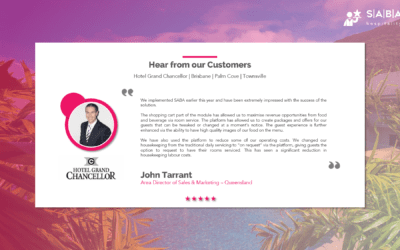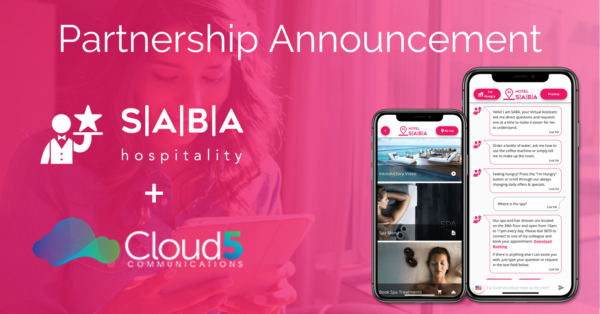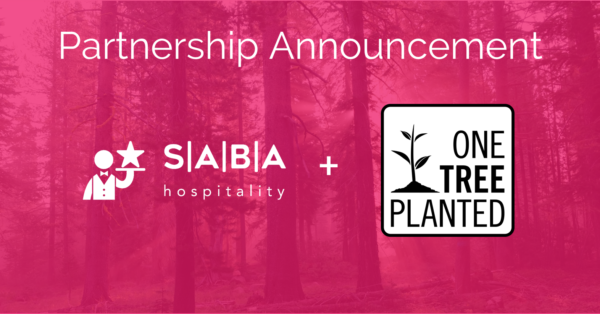Ok, I’ll let you in on a little secret. Outside of business and sport, my other great love in life is movies. Give me a bowl of pasta, a glass of wine and a good movie, and I’m in heaven! But enough clues on my ever-increasing age.
Now I have a word for you to think about. I wouldn’t say it’s reached the classification of ‘dirty word’ just yet, but for those in hotel management, it may keep you up at night more than Hannibal Lecter himself. Not that Silence of the Lambs isn’t a great movie, it’s one of the best. In fact it’s one of only 3 movies to win the ‘big 5’ Oscars in the same year (Best Picture, Best Actor, Best Actress, Best Director, Best Screenplay. A jelly bean for those who know the other 2). Anyway, back to this ‘dirty’ word. Think employees. Think entitled. Unmotivated. Difficult. Disengaged. Yep, you guessed it. All of these terms are commonly used to describe that infamous generation known as MILLENIALS! (I can hear the collective groan from down here in Australia).
Why is this so important? Simple really. Recent studies have found 81% of workers are not satisfied with their job, 71% are not engaged, and 60% are looking for a new job. Now don’t shoot the messenger, I’m just delivering the hard reality of todays employment market. Also, I have little doubt this is not a light bulb moment for most hoteliers. Staff retention has always been one of the biggest issues conforming the hospitality industry. As a side note, I used to love talking to Smergan about this. It would frustrate him to the point where I was positive some sort of spontaneous human combustion was a real possibility. His cheeks turned red. Glasses fogged up. It always reminded me of that classic line in Seinfeld “George is getting upset”. It would have been concerning if it wasn’t so funny.
Anyway, his frustration came from an entirely understandable place. The property really did look after their staff. Paid well over the award. Were flexible with holidays. Had great benefits. But still struggled with staff turnover and, more importantly, engagement. This was especially the case with ‘the dreaded’ millennials. And since millennials are making up an ever-increasing proportion of the workforce, I thought it best we find a solution before poor Smergon found himself replacing Jack Nicholson as the lead in the sequel to One Flew Over the Cuckoo’s Nest (FYI another of the 3 movies to take out the ‘Big 5’ Oscars in one year).
You see, like most of you probably appreciate, Smergan knew that engagement decreased staff turnover. But more importantly, happy and engaged staff, created an emotional response in guests that link them to the hotel. And it is this emotional response over anything else that kept guests coming back and recommending the hotel to friends and online. And will this increase revenue? Well, “does Dolly Parton sleep on her back?” Of course! This notion of an employee’s emotional state (aka engagement levels) and the effect on revenue is explored in depth by Stephanie Pougnet in a article written for ehotelier.com on October 19th 2017. Have a read if you get a chance, it’s extremely insightful.
Ok, so I can hear you thinking to yourself, “I knew staff engagement and turnover was a problem, and I’m not here for a masterclass in movie trivia, so get to the point, what’s the solution?”.
Well luckily, the solution not only works for millennials, but everyone, in all facets of life (but it is especially effective in the millennial population). It’s gamification! Gamification creates engagement. And engagement is the best resource an employee can give you. It can literally be difference between success and failure. It’s hands down the best medium ever utilized to create and sustain engagement in a population. And it’s been around forever! Don’t believe me? Well, Emperors used it to entertain the people when food was scarce, or times were hard. It literally kept them happy. Have you ever seen the movie Gladiator? If so you’ll remember Commodus called 12 days of games following the murder of the Roman Emperor. And yes, I know it’s fictional (I’m not a complete tragic), but the use of games in ancient times for similar purposes is well documented. And our affinity for games has never diminished. Games are as popular today as they ever were.
But Why? What makes games such an effective tool for engagement (and learning for that matter)? Well, people much smarter than myself have researched this very question, and the simple answer is this: Games fulfil the two highest levels of human need that motivates people towards particular behaviours. That is the needs of Esteem and self-actualisation (Maslow’s hierarchy of Needs). Now trust me, I’m not about to delve into the never-ending depths of human psychology. This is an article on engagement, and some of you may find human psychology about as interesting political broadcasts (an interesting sidenote: political broadcasts were actually voted the most uninteresting thing in Britain. Even above being put on hold. Can you believe that? People find doing nothing more interesting than politicians! That probably sums up the state of world politics though). Anyway, back to needs. The only thing you really need to know is this: After the basic physiological needs for food, water and safety, and the phycological need for meaningful relationships, people are motivated by feelings of accomplishment (esteem) and self-fulfilment (actualisation). And games provide a forum to fulfil both these needs.
So, enough with the heavy stuff. But you must understand that games satisfy human needs, while simultaneously creating a fun working environment. And 90% of employees find a fun working environment extremely motivating. The worlds best companies know this and exploit it. It’s why Apple and Google are seen by millennials as the most desirable places to work. They present themselves as fun places to be. I’m sure you’ve seen the beanbags and slippery slides. I mean, who doesn’t like a good slide?
But according to Gartner, 70% of the worlds top 2000 companies are the same, they use gamification to get results. HP increased revenue by $1 Billion after implementing gamification. Deloitte decreased training time by 50% because people learn faster through the additional engagement gamification provided. Even Nike cashed in, capturing 10% of the jogger’s market in 1 year using gamification. We are literally addicted to it. But if you’re not convinced, try this on for size: The sum of all hours spent playing World of Warcraft is the equivalent of 5.93 billion years. That surpasses the entire history of planet earth. From the beginning of time until now. Easily! Another example: Markus Persson, the creator of the game Minecraft, paid $70 Million in cash for a Beverly Hills home after google bought the company for $2.5 Billion. Outbidding Jay-Z and Beyoncé. The geek in me likes to think this is the skinny nerd from school literally giving the cool kids the middle finger.
But I’m sure you get the point. People loves games. They are engaging, fun, a great learning tool, and can be implemented into your hotel to decrease staff turnover, motivate your employees, decrease training time and get the whole organisation working towards the common goals that drive profit. But they key is selecting the right model for you. And that’s where we at Saba Hospitality want to make it easy for you. If you don’t want to go with just any old gamification platform, our tech-wizards have been hard at work developing an industry specific gaming tool designed specifically to suits the needs of hotels and their employees. It’s called SabaPlay. It’s pretty cool and we think it’s going to reform the industry and how staff management is approached. But I understand it’s new, and if this is the first you have ever heard of gamification, I’m sure you’re sceptical. So if you’re just not sure how this all fits in to your property, drop us an email and we can arrange to have a chat. If it’s not for you, that’s fine. Hopefully you still get something out of the conversation.
Oh yeah, before I go, I know you won’t be able to sleep if I don’t tell you the third ‘Big 5’ Oscar winner. Drum roll please…….It Happened One Night.
Until next time.




0 Comments